How to Use HARO to Build Backlinks in 2024

What is HARO and how does it work?
HARO, also known as Help a Reporter Out, is a robust platform that serves as a bridge between sources and journalists.
It provides an efficient and straightforward way for journalists to find credible sources and experts for their articles.
For instance, when a journalist is working on a piece about "work from home," they may require quotes or insights from individuals who have relevant experience or expertise in the subject matter.
This is where HARO comes into play, as it allows the journalist to easily connect with sources who can provide valuable input and information.

Through HARO, journalists can post queries, or requests for information, which are then sent out to a vast network of potential sources. Interested sources can then respond to the query, providing relevant and insightful information to the journalist.
This not only saves the journalist time and effort in finding sources but also helps to ensure that the sources they use are reliable and trustworthy.
One standard journalistic practice when citing sources is to include a link to the original source material. This link can direct readers to a specific website or social media handle where the source material can be found.
Typically, the link provided by journalists leads to the homepage of the source's website, particularly in cases where there is no specific webpage or article that directly relates to the topic being covered.
This is a common practice because it is often the most straightforward and efficient way for readers to find the source's website and explore additional information related to the topic.
Alternatively, if the source has a social media presence, the link provided may direct readers to their social media handle, allowing readers to engage with the source and potentially gain a deeper understanding of their perspective and expertise.
How to use it as a link building tactic?
Using HARO as a link-building tactic involves first registering on the platform as a source. This allows you to connect with journalists who are looking for sources and experts to provide information for their articles.
When registering on HARO, you can choose the specific industry in which you are an expert, which will help ensure that you receive queries that are relevant to your knowledge and experience.
It's important to choose the categories that best represent your expertise to increase the likelihood of being matched with a query that is a good fit.
As a helpful tip, it is recommended to select all relevant categories when registering as a source.
This not only increases your chances of being matched with relevant queries but also expands the pool of questions you can answer, which in turn can help you to establish yourself as a knowledgeable and trustworthy source within your industry.
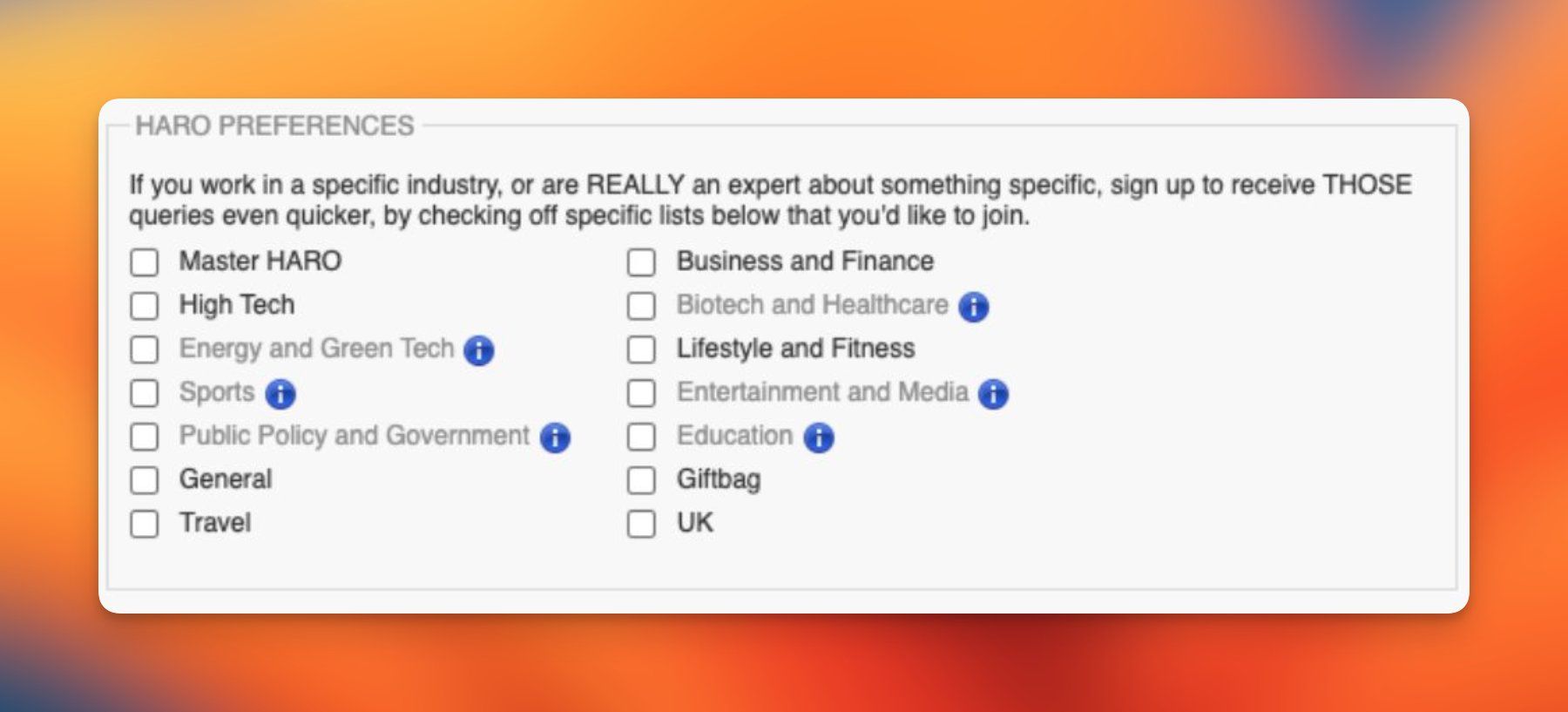
How do I get in contact with journalists?
Once you have registered on HARO as a source and selected the categories that best represent your expertise, you can expect to receive two emails each weekday: a morning edition and an evening edition.
These emails will contain a list of all the queries that HARO has received from journalists that day.
Each email will provide a summary of the queries received, with the subject line typically describing the topic of the query. To access more detailed information about a particular query, you can simply click on the question of interest within the email, and you will be directed to a webpage that provides all the relevant details.
On the query webpage, you will find information about the journalist who submitted the query, the topic of the article they are writing, and the specific information they are looking for from sources.
You will also see any specific requirements or instructions that the journalist has provided, such as the deadline for responding or the preferred method of contact.
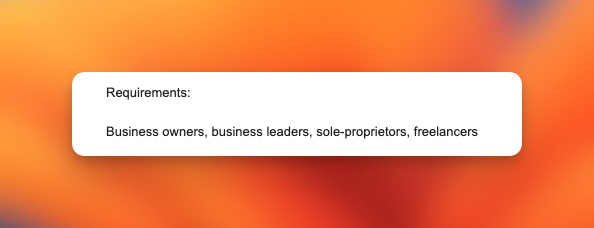
If you feel that you are a good fit for a particular query, you can respond directly to the journalist through the contact information provided in the query details.
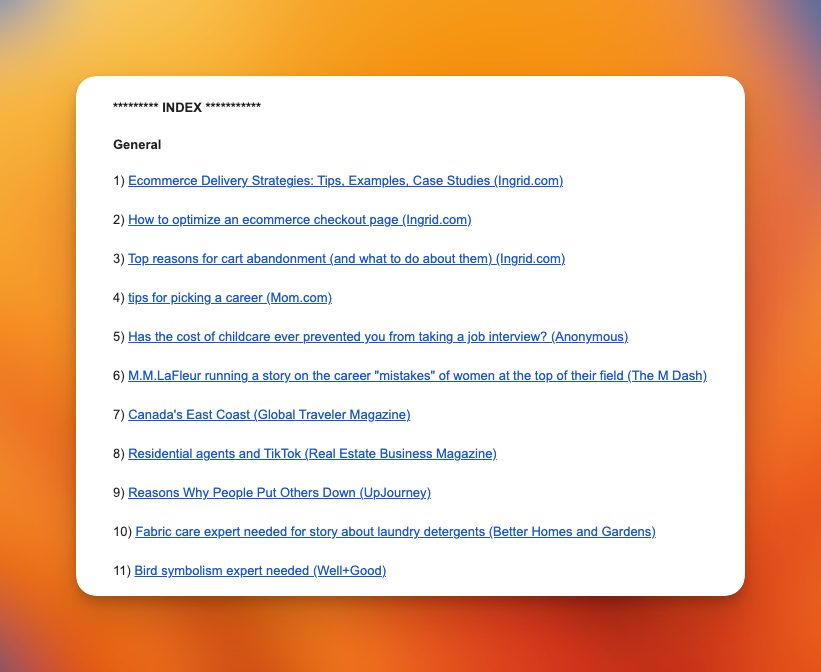
Here comes the most crucial part - the question selection.
I prefer to answer questions related to:
• Favourite/best books on any topic
• Work from home
• Marketing
• Software/apps
These don't require super-specific expert knowledge and are super easy to answer.
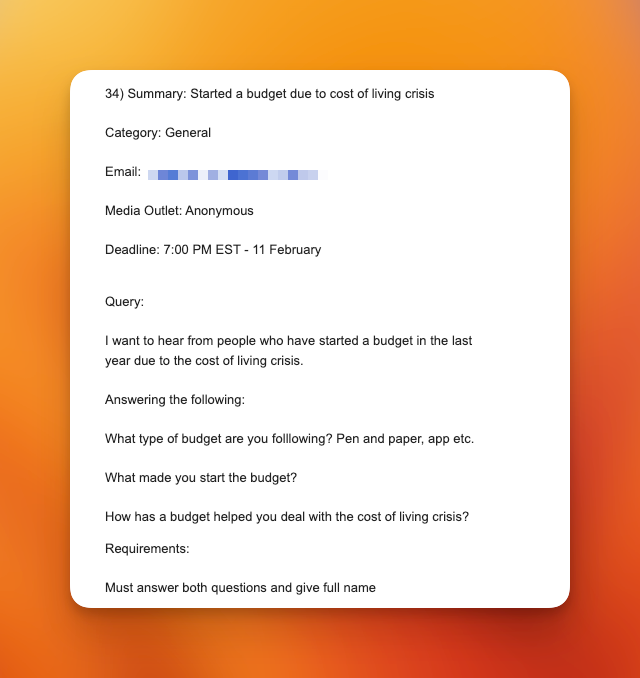
Remember that journalists don't need a simple Wikipedia-type answer to their query.
ChatGPT won't help you either. 😨
They need a personal story that resonates with their readers. Or maybe they need an expert in a specific field.
Here's one of my email answers. 👇
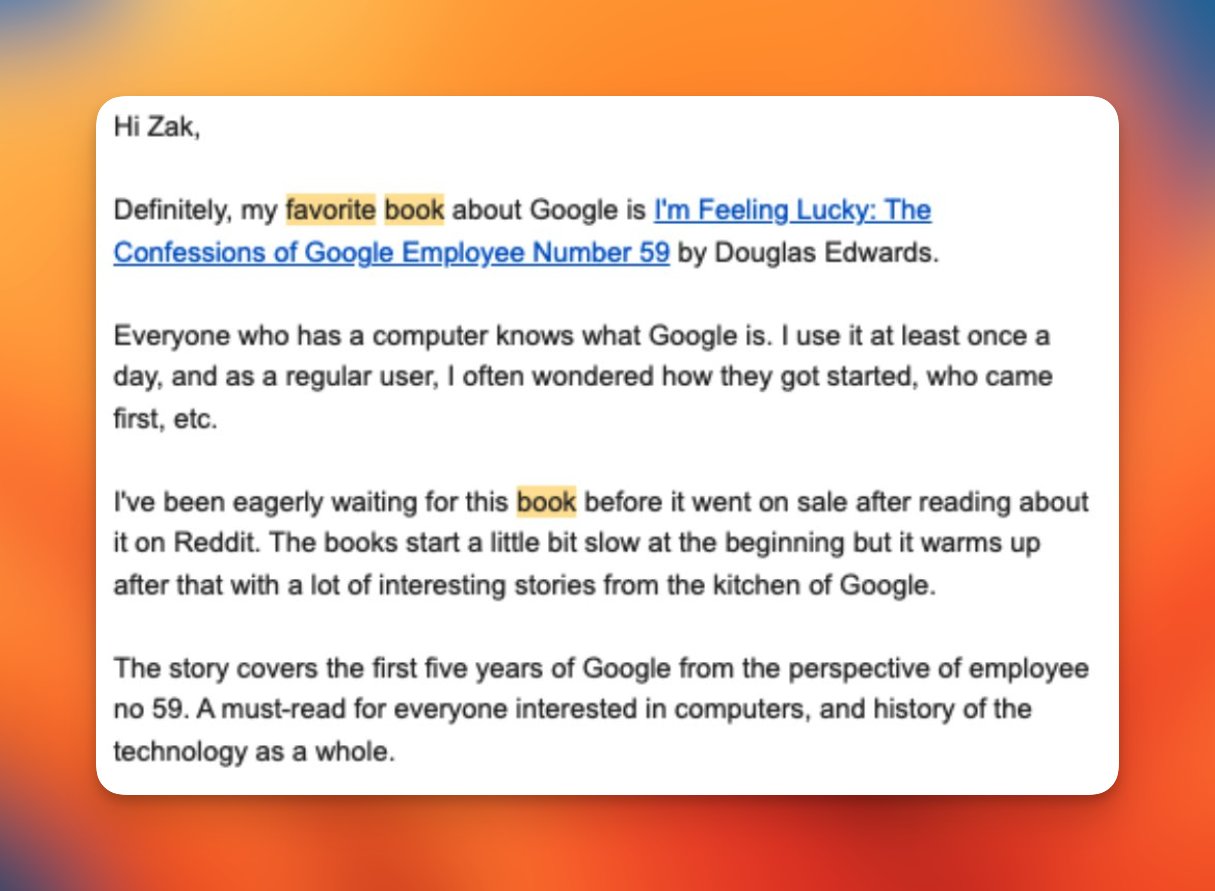
As with any link-building strategy, using HARO to build backlinks requires consistency and patience.
It's important to respond to as many relevant HARO queries as possible to increase your chances of being featured in a journalist's article and receiving a valuable backlink.
What kind of backlinks I can build with HARO?
While the benefits of using HARO as a link-building tactic may not be immediately apparent, with continued effort and persistence, you can start to see results over time.
After several months of answering HARO queries and potentially following up with journalists for more information, you may start to see new backlinks to your website or social media handle.
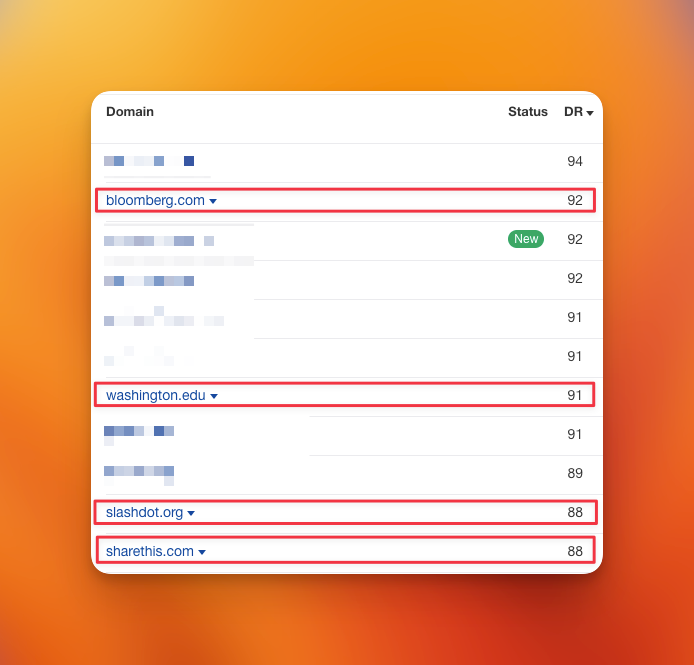
Conclusion
In conclusion, HARO link-building can be a powerful strategy for building high-quality backlinks from reputable publishers.
While the backlinks you receive may not always be directly relevant to your niche, they can still help to improve your website's search engine ranking and provide valuable exposure.
To make the most of HARO as a link-building tactic, it's important to combine it with other strategies, such as guest posting.
By using guest posting to build relevancy and authority within your niche and HARO to build high DR backlinks from big publishers, you can create a comprehensive link-building approach that addresses multiple aspects of your website's search engine optimization.
